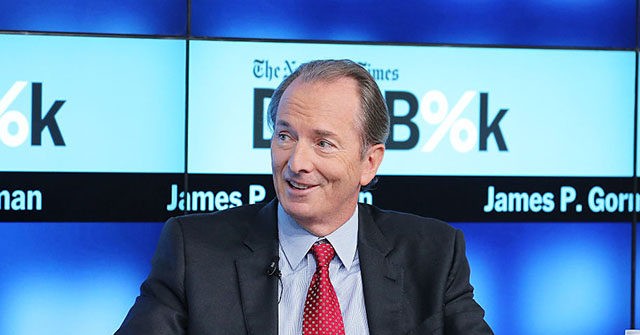Bidenflation: Huge Bonuses Send Wall Street Pay Soaring with Biggest Payouts in a Decade

Damn it feels good to be a banker.
Wall Street firms are paying huge bonuses as the economy emerges from the pandemic, with compensation packages growing to levels not seen in a decade.
Many of the top executives have received pay packages solidly in the eight figures.
J.P. Morgan chief Jamie Dimon saw his 2021 compensation jump to $34.5 million. He was bested by James Gorman at Morgan Stanley, whose seven percent raise boosted pay to $35 million. Goldman Sachs CEO David Solomon’s compensation went from $27 million in 2019 to $35 million for 2021 (he received just $17 million in 2020 after the bank paid enormous fines).
Those are the biggest compensation packages for Wall Street CEOs since Goldman’s Lloyd Blankfein was paid $41 million in 2008.
And the big bonuses are not just confined to the c-suite. The Wall Street banks are paying up for their traders and investment bankers as well. Goldman Sachs said it paid an average of 23 percent more per employee for the past year. And top dealmakers at firms such as Morgan Stanley, J.P. Morgan, and Goldman are getting 30 percent, 40 percent, and even 50 percent more, according to Bloomberg News.
The Wall Street Journal reported that the five biggest investment banks paid out $142 billion in compensation for 2021, $18 billion more than in 2020. That’s a fourteen percent rise, double the rate of inflation.
Bloomberg reports:
After years of restraint, bank leaders are once again projecting a “whatever it takes” approach to compensation, vowing they won’t be outbid for top performers, lest they lose an edge in a hot market for trading and deals. That has their employees in Manhattan uncorking $2,000 bottles of wine at the fastest pace in years, buying bigger homes in fashionable TriBeCa, and snapping up yachts.
It’s a long-awaited moment for a generation of rising executives who’ve spent years missing out on the riches reaped by those before them.
In the immediate aftermath of the 2008 financial crisis, many expected Wall Street pay to fall back down to earth. Instead, total compensation jumped 18 percent in 2009 and another 5.7 percent in 2010. While some of the more lavish pay packages for top executives did fall — Blankfein’s pay fell to just $14.1 million in 2010 — total compensation continued to rise.
“That time, it triggered a swift rebuke from lawmakers. They accused bankers of rewarding themselves after taxpayer-funded bailouts that saved the industry from oblivion and helped markets rebound, as the rest of the economy struggled,” Bloomberg reported.
But as President Biden assumed office and pumped trillions of dollars of cash into the United States’ financial system, those on Wall Street become eager to cash in and demanded their firms pay up, and lavish paydays are back. It helped that last year’s stock market surge has been very good for shares of Wall Street firms. Goldman shares rose by around 36 percent in 2021. Morgan Stanley shares jumped 43 percent. J.P. Morgan shares climbed by around 24 percent.
But the Federal Reserve-provided easy money that helped fuel the stock market boom has also ignited inflation that has been punishing for the American workers.
In 2021, the average wage for the American worker shrank by 2.4 percent after adjusting for inflation, according to the Labor Department. Consumer prices rose seven percent for the year, with gasoline prices nearly doubling. The price of used cars rose by 37.3 percent and new car prices jumped nearly 12 percent. Prices of meat, eggs, and poultry were up 12.5 percent. Average monthly rents listed in the U.S. jumped more than 14 percent year over year in December, climbing to $1,877, according to data from Redfin.
[embedded content]Ironically, even those huge CEO bonuses may not be enough to overcome inflation. Goldman chief Solomon’s compensation was just six percent above 2019. Gorman’s was seven percent above last year. Dimon, although he received slightly less than his rivals, got a bigger lift, seeing his compensation rise 9.5 percent.
In January, consumer sentiment tanked to the lowest level in a decade. Seventy-five percent of Americans said Biden’s economy was “not so good” or “poor,” according to an ABC News/Ipsos poll released Sunday. No poll data on Wall Street executives’ opinions of the economy were available.
Follow Wendell Husebø on Twitter and Gettr @WendellHusebø
" Conservative News Daily does not always share or support the views and opinions expressed here; they are just those of the writer."

Now loading...